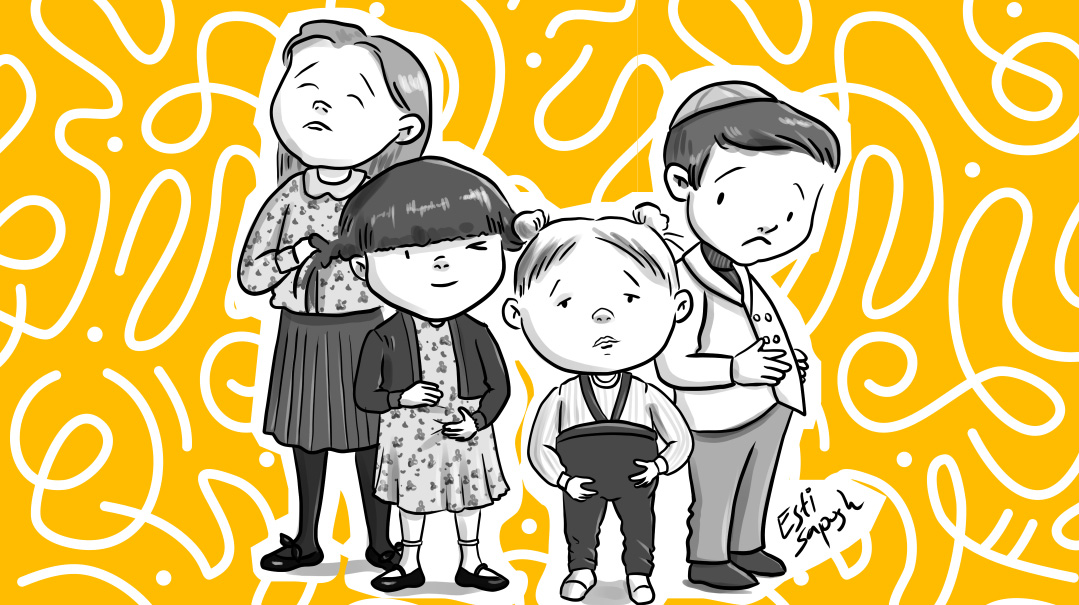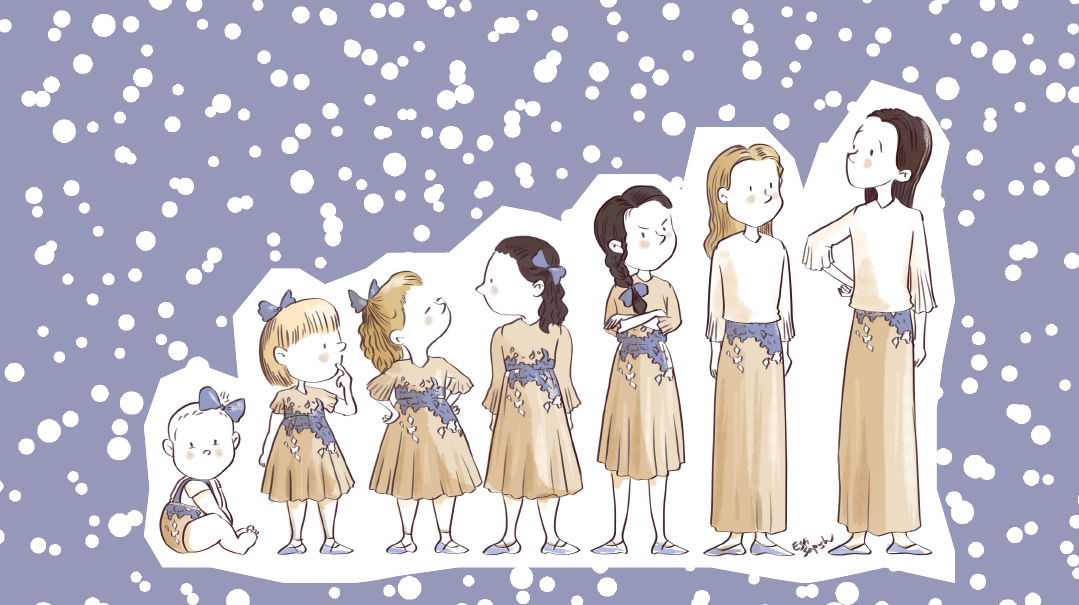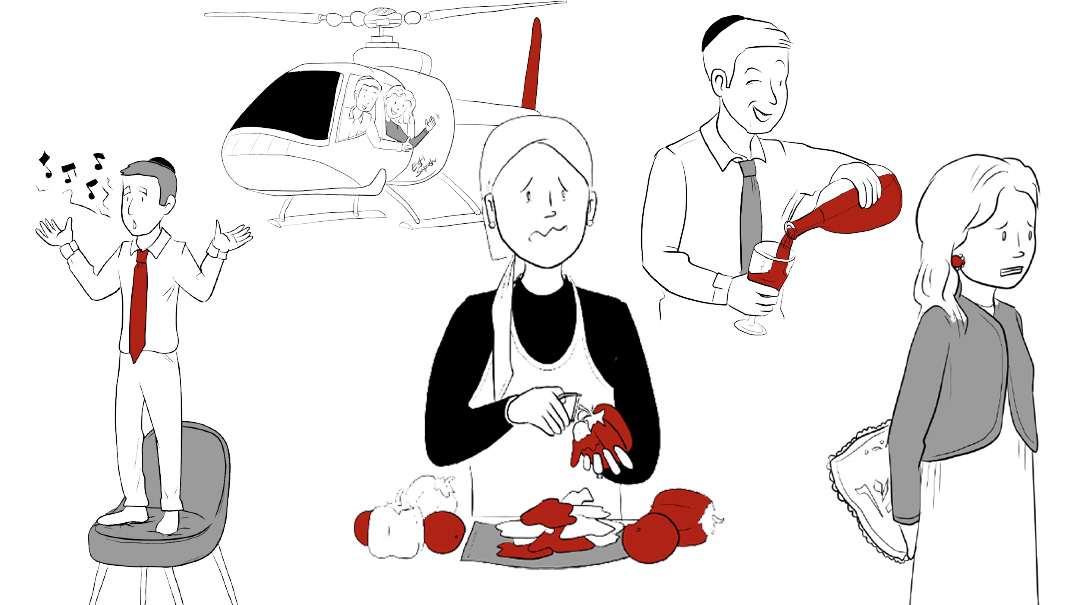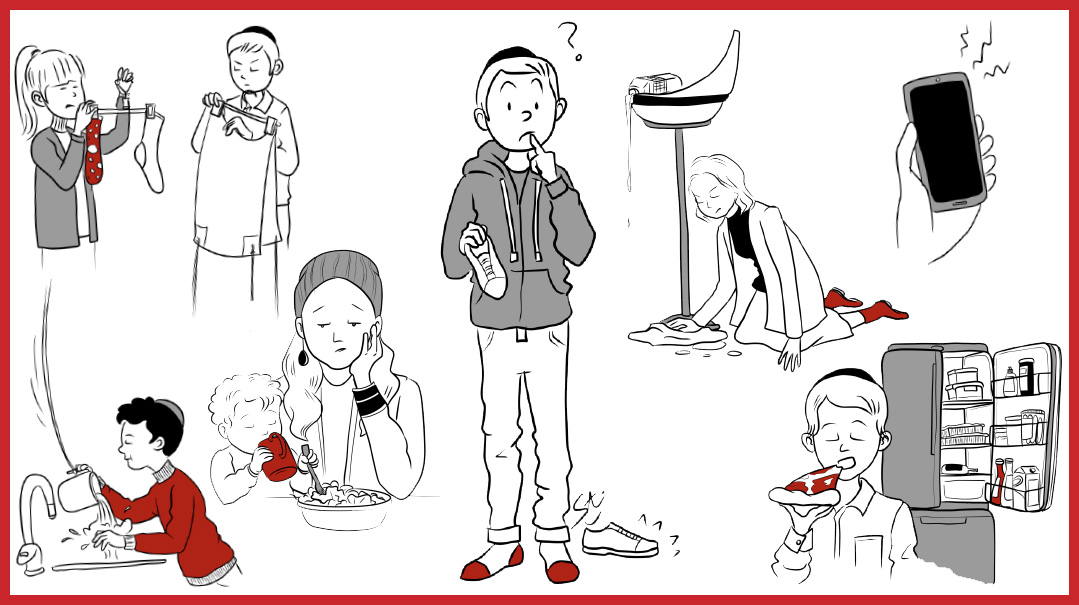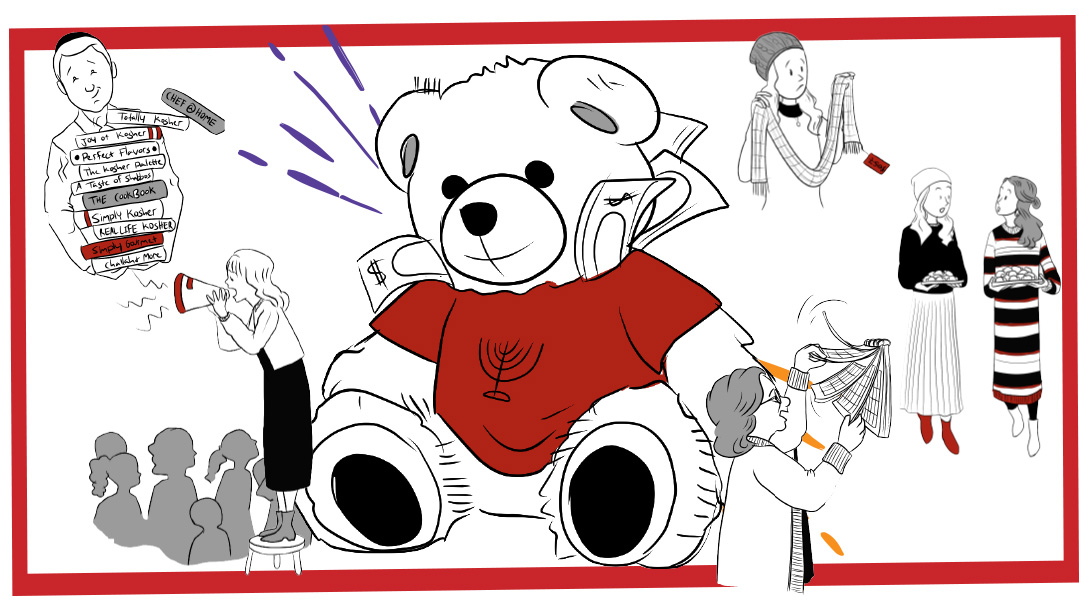The Complete Guide to Over-Apologizing, Under-Apologizing, and Re-Apologizing
| October 13, 2024Unsolicited advice from people with no qualifications but many opinions
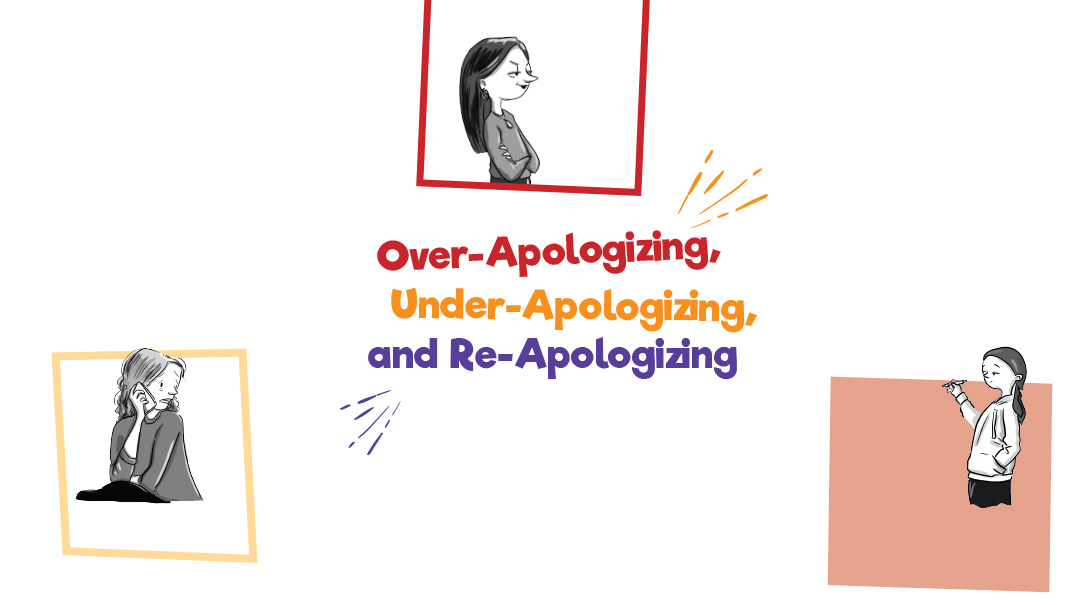
The Two Cents Guide to saying, “I’m sorry.”
IT sometimes feels like we’re apologizing our way through life, trying to make sure that everyone we care about (and everyone we don’t even care that much about) is happy with us at all times. Then again, it might just be that this is the point of view of the two millennials who write this column, and if you’re reading this saying, this is totally not me, well, we’re really, really sorry. Over-apologizers submit the following questions:
I noticed my sister keeps apologizing passive-aggressively about things that didn’t really bother anyone, like, “Sorry, I used your favorite water bottle — I washed it and put it back when I finished,” and, “Sorry, I moved your keys from the front hall to the key hook.” What’s the deal and why won’t she stop?
Her love language is clearly words of affirmation, but she’s veering into some toxic territory there — she’s creating a profile for the other person that frames them as clearly petty and ridiculous for requiring an apology for such silly things. Best thing to do is one-up her toxicity with some of your own. Then, for fun, interject random affirmations that have nothing to do with the apology and see if that fills up her cup. For example, you can reply, “You’re right, I would have NEVER forgiven you for putting my keys away, you absolute monster. And by the way, that color sweater really makes your eyes pop!” Then walk away. Hopefully, you can nip this in the bud, so she won’t grow into an adult who gestures to her spotless house and says, “Sorry for the mess.”
My friend and I worked on our mutual friend’s daughter’s sheva brachos together, and there were a few mishaps. We worked through them, but after the dust settled, my friend has been so defensive and apologetic — and I’m starting to realize that everything that happened was totally her fault. I wasn’t upset before, but I sure am now.
This is a rare opportunity! You’re being reverse-gaslit that something was NOT your mistake, when in reality, you thought it was just as likely your fault as hers. Don’t let yourself be manipulated, and insist right back that the burden is yours to share. Or, better yet, find an unconnected third party and blame the whole thing on them.
My parents are getting older, so we have a Yom Tov rotation for hosting them among the siblings. My sister totally interfered with the order to make her own hosting schedule easier, but at the expense of mine. When I confronted her, she replied, “Sorry that the arrangements I made upset you.” Or as my kids say, “Sorry, not sorry.” Now what?
You know what? We’re sorry that she didn’t apologize with the exact specific script that would have made you feel better. Be a big girl and never forget about this incident, so that next time, you can one-up her before she gets the chance. Remember to send her a text with just a hug emoji when you do.
Most of my marrieds told me that they’re only available to come to me First Days this year, so I asked my youngest daughter-in-law if she could come Second Days, so we aren’t alone. I know she’d rather be with everyone else for all the First-Days action and we technically have the room, but Simchas Torah in a quiet house is just depressing. Should I apologize?
Employ some strong body-language techniques to convey an overall vibe of apologetics but without actually saying you’re sorry. Because… let’s face it… you’re not. Unrelated: gifts go a very, very long way to pay down whatever guilt you might be feeling.
Should I be forcing my kids to apologize? I would rather they change their negative behaviors than get caught up in the semantics of apologizing properly, right?
Yes and no. Telling your toddler to say sorry after she grabs her friend’s toy is to check an “I’m a good Mommy” box, which isn’t good parenting. But teaching her to easily and calmly apologize is good parenting. Best practice is to request the apology but feel extremely guilty about it the whole time.
I had to back out of a Sunday Funday rotation at the last minute — one of the girls was bullying my daughter, and she was panicked at the thought of spending 20 Sundays with her. I told the other moms in the group and apologized to each one individually for leaving them high and dry, including the mom of my daughter’s bully. It’s gotten back to me that the whole group is still upset with me. I did everything I could do, so now what?
Ideal option: Never think about this again. None of this is your problem. Realistic option: Buy 20 mani-pedi gift certificates and bake them into perfect sourdough loaves which you can leave on each doorstep tied with a sprig of eucalyptus (or better yet, a whole diffuser).
The week after sheva brachos, my new husband asked me if I wanted to go kite flying with him. I thought it was random, but agreed, and we went. While we were flying the kites, he turned to me and said, “Getting nostalgic vibes from when you used to do this with your cousins?” I had no idea what he was talking about. Turns out, the girl he dated before me mentioned how much she loved flying kites. My husband has been apologizing for, like, two years straight. But I can only extrapolate the obvious — does he think he married the wrong girl?
Wrong girl? Would the wrong girl take advantage of the guilt forever to ensure maximum shalom bayis for the rest of her life? We think not. “Key word: Kites,” should be enough to end every future fight you ever have. Lucky you!
My husband has a tendency to apologize for upsetting me and it feels like he’s just saying it to absolve himself, not because he regrets the action. How do I get him to realize that I want a genuine apology — which is what I offer him when I mess up?
You’re obviously better at this skill than he is, so offer him a step-by-step flow chart identifying how to formulate an action plan to do better — ideally, in front of your children so they can learn this excellent communication technique for their own future homes. This should not escalate the fight at all.
APOLOGIES
Solicited Advice from a Very Wise Woman with Many Qualifications:
Often, apologies cause as much pain as the original injury. This is because people’s typical apologies leave the wounded party feeling dismissed, judged, insulted, or are simply insufficient. Here are eight ways NOT to apologize, followed by ways to fix them. The ultimate healing apology will contain elements of each of the “right” apologies.
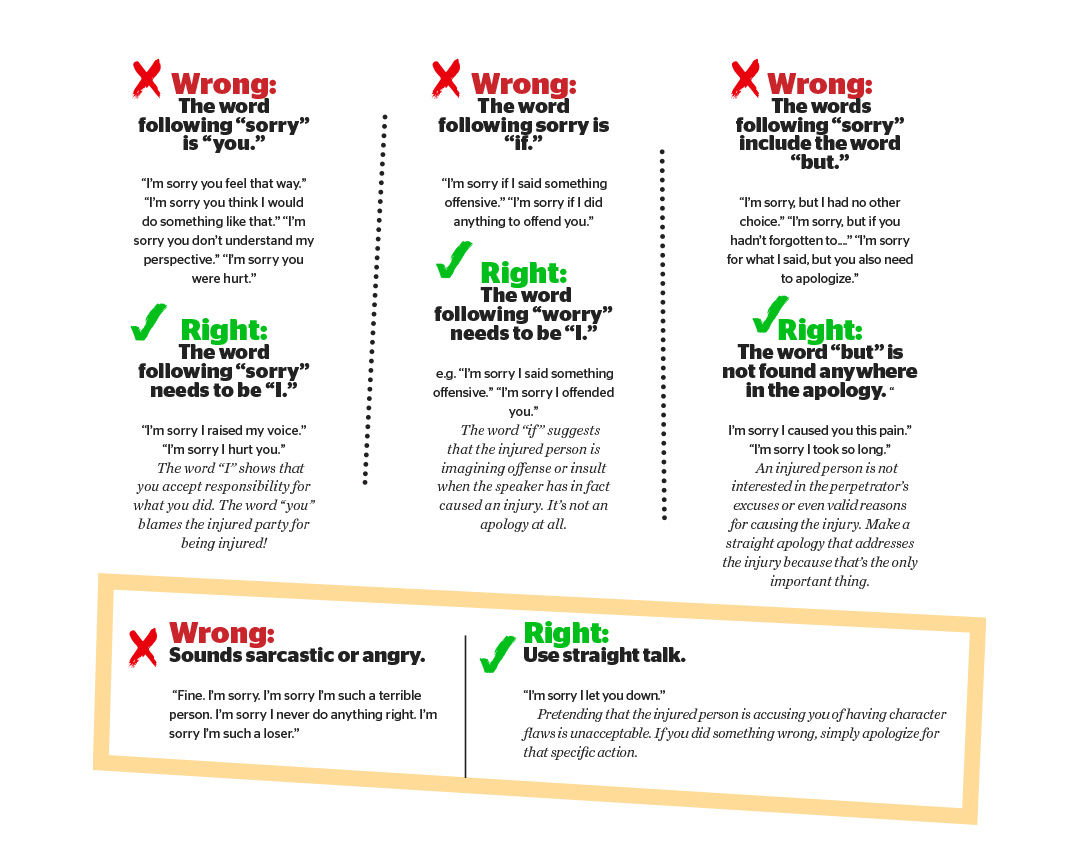
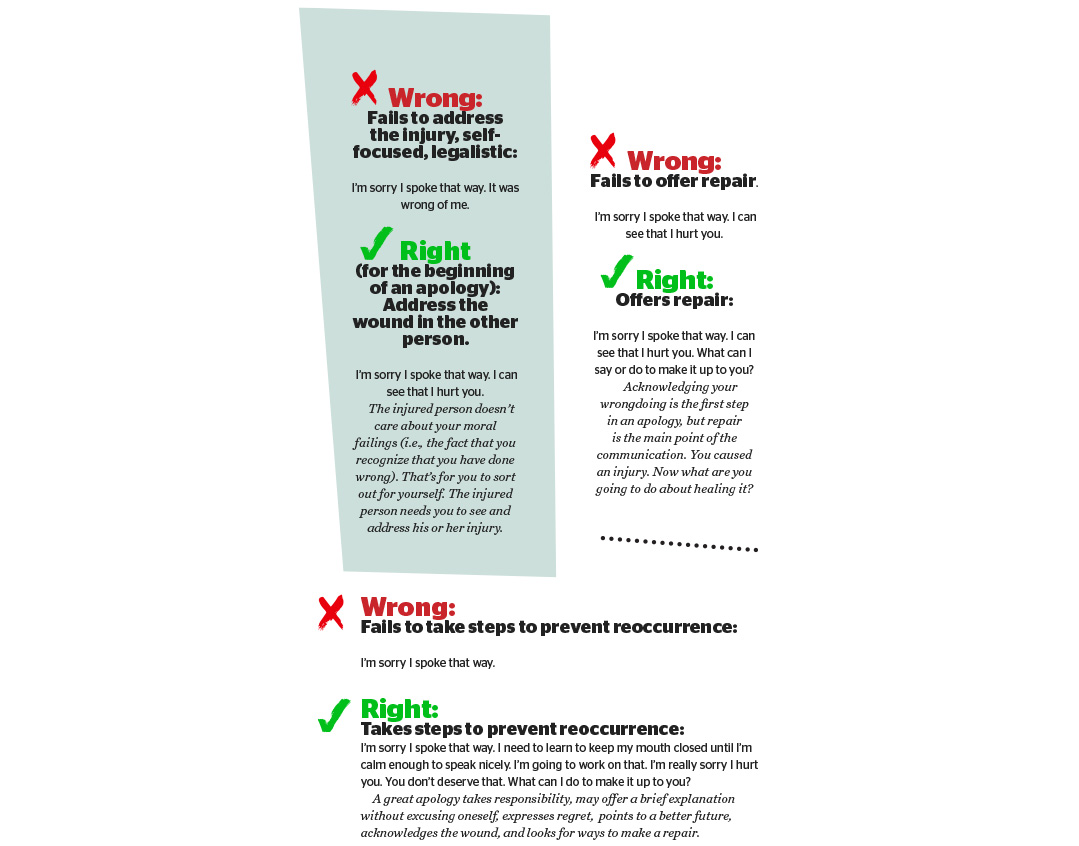
(Originally featured in Family First, Issue 915)
Oops! We could not locate your form.

